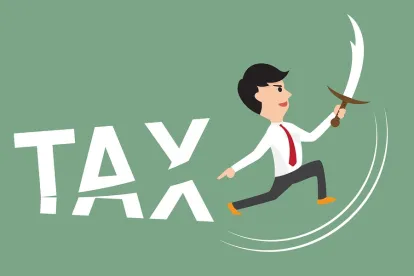In December 2017, Congress passed major changes to the tax laws. While the new law substantially lowered tax rates on all businesses, it also eliminated or reduced some popular and widely used deductions. Among the deductions Congress eliminated was the deduction for entertainment expenses under Code §274. Because Congress did not eliminate the 50 percent deduction for business meals in section 274, the change created some confusion for businesses and tax professionals.
Before the new tax law took effect for 2018, taxpayers could deduct 100 percent of ordinary and necessary business expenses incurred for an item of entertainment, amusement, or recreation, but only if: 1. The item was “directly related” to the active conduct of the taxpayer’s trade or business, or 2. In the case of an item directly preceding or following a substantial and bona fide “business discussion,” the item was associated with the active conduct of the taxpayer’s trade or business. The new law eliminated that deduction entirely.
Before the new tax law took effect, taxpayers were also entitled to deduct 50 percent of ordinary and necessary business expenses incurred for meals. But while the new law repealed the deduction for entertainment expenses, it did not repeal the deduction for meals. Thus it was important for the Internal Revenue Service (IRS) to provide guidance on whether and when taxpayers may deduct the cost of meals provided during or as part of an entertainment event. On October 3, the IRS issued interim guidance ahead of regulations that it plans to release, probably early next year.
What Businesses Need to Know Now
Taxpayers may deduct 50 percent of the cost of otherwise allowable business meals that meet the following criteria:
-
The expense qualifies under Code §162 as an ordinary and necessary expense paid or incurred during the taxable year in carrying out the taxpayer’s trade or business.
-
The expense is not “lavish or extravagant under the circumstances.”
-
The taxpayer or an employee of the taxpayer is present when the food/beverages are furnished.
-
The food/beverages are provided to a current or potential business customer, client, consultant, or similar business contact.
-
If furnished at an entertainment event, the food/beverages are purchased separately from the entertainment, or stated separately from the entertainment charge on any bill, receipt, or invoice. On this point, taxpayers may not artificially shift the cost of the non-deductible entertainment event to the cost of the food/beverages.
IRS Notice 2018-76 includes examples that illustrate the operation of this interim guidance, and asks the public to submit comments for future guidance by December 2, 2018.
Taxpayers seeking to deduct 50 percent of the cost of business meals should follow this interim guidance. Perhaps most importantly, if providing food and beverages in connection with an entertainment event, taxpayers should insist that the vendor state the cost of the food and beverages separately from the cost of the entertainment.


 />i
/>i
